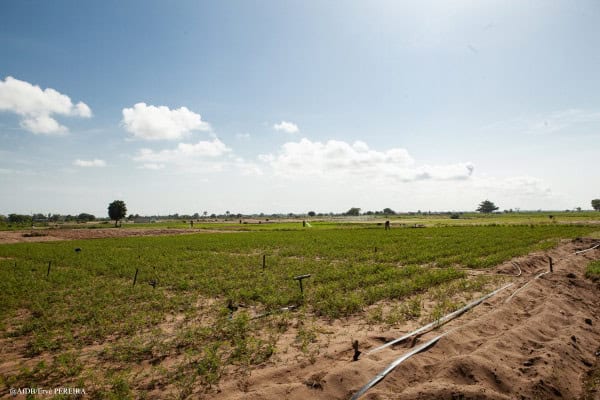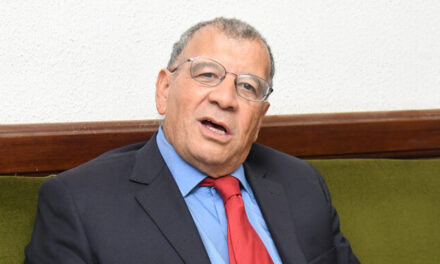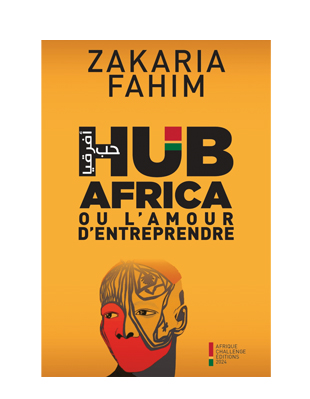At first light, the sun is already showing its rays in Djeffa, a small town in the Sèmè-Podji district, in the south-east of Benin. With her hand over her eyes to protect herself from the harsh morning light, Justine Gantekpin looks out over the expanse of her market garden. A few years ago, this fifty-year-old farmer had a small cultivated area. Today, she cultivates two hectares of land. Her tomato, eggplant and lettuce plants benefit from regular watering thanks to a borehole built in the area and the installation of quality pipes.
« This project was very well thought out and implemented. I am proud of it! It provided us with the appropriate material resources to achieve modern agriculture. Today, our activities have prospered, » she rejoices.
About ten meters from Justine, Jean Loupeda walks his plot, also satisfied with the support he received to operate his vegetable garden. “Before, I had a serious labor problem. To water a hectare, it was necessary to employ at least six workers for six hours. Thanks to the equipment deployed by the project, I only need two workers. This saves me time, energy and money,” confides Jean.
“The project did not stop there,” he continues. “At a time when we had difficulty buying inputs, the project gave us a welcome boost. We are now working with much greater ease. All this has allowed us to boost our production, while saving money.”
Like other farmers in the region, Justine and Jean benefit from the Ouémé Valley Agricultural Infrastructure Support Project (PAIA-VO) ( http://apo-opa.co/3Ydp5vP ). Launched in 2014 and funded to the tune of €63.63 million by the African Development Fund ( http://apo-opa.co/4dAg18O ), the project covered 14 communes located in the Ouémé, Zou and Atlantique departments, bordering the Gulf of Guinea.
By promoting three promising sectors, rice, corn and market gardening, the project, financed by the concessional window of the African Development Bank Group, has made it possible in particular to carry out hydro-agricultural developments to secure production and to build storage and marketing infrastructures to ensure better consideration of value chains.
At the end of the project ( http://apo-opa.co/3ZT1scY ) in December 2023, the additional food crop production (rice, corn) produced increased from 70,100 tonnes before the project to 90,300 tonnes during the 2021-2022 and 2022-2023 campaigns. The average annual income of rice producers increased significantly, from around 108 euros to 358 euros, for an initial target of 220 euros.
« The project has allowed us to develop our productivity, » says Enock Koumagnon, a farmer in Sèmè-Podji. « We were able to educate our children and enroll them in major universities. As a farmer, I was able to send my children to university… That’s how much good this project has done us! We can say that the project is our benefactor. »
Distributed by APO Group on behalf of African Development Bank Group (AfDB).
About the African Development Bank Group:
The African Development Bank Group is Africa’s premier development finance institution. It comprises three distinct entities: the African Development Bank (AfDB), the African Development Fund (ADF) and the Nigeria Trust Fund (NTF). With representation in 41 African countries, and an external office in Japan, the Bank contributes to the economic development and social progress of its 54 regional member states. For more information: www.AfDB.org









